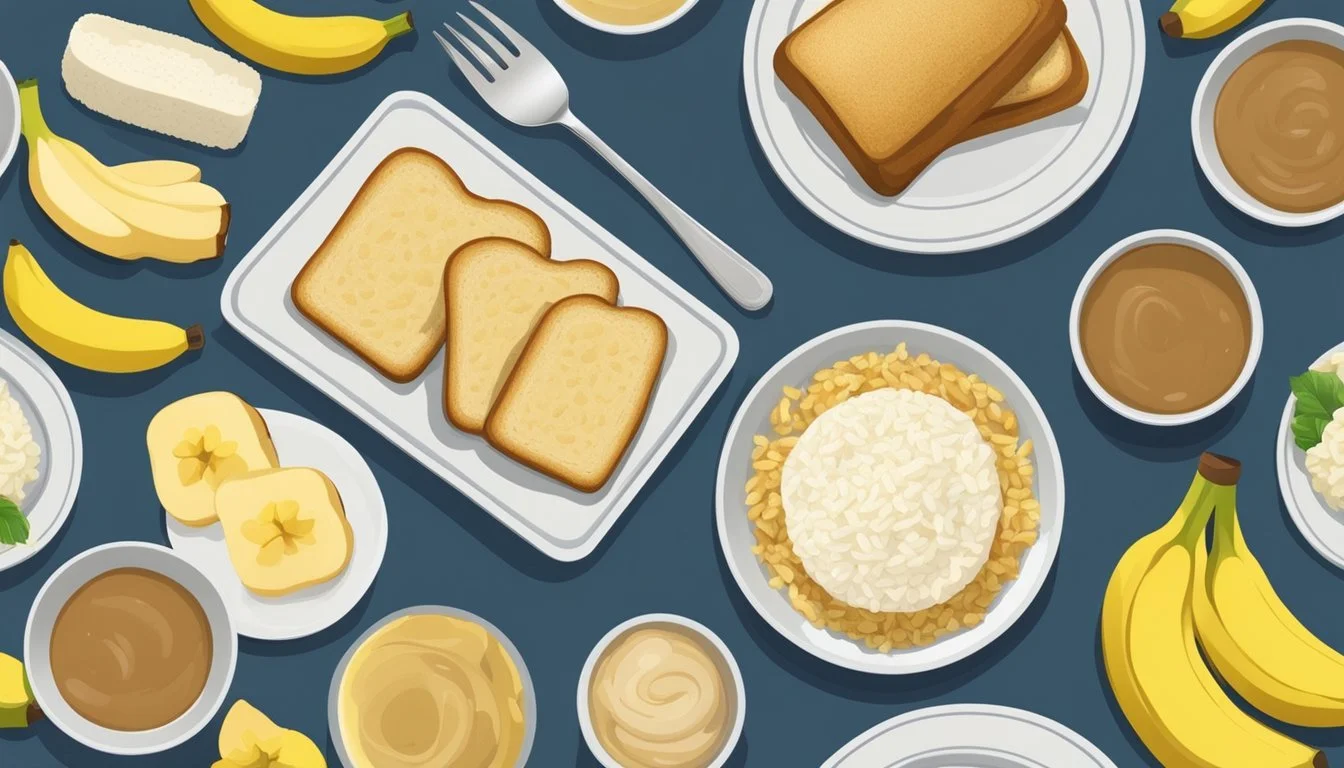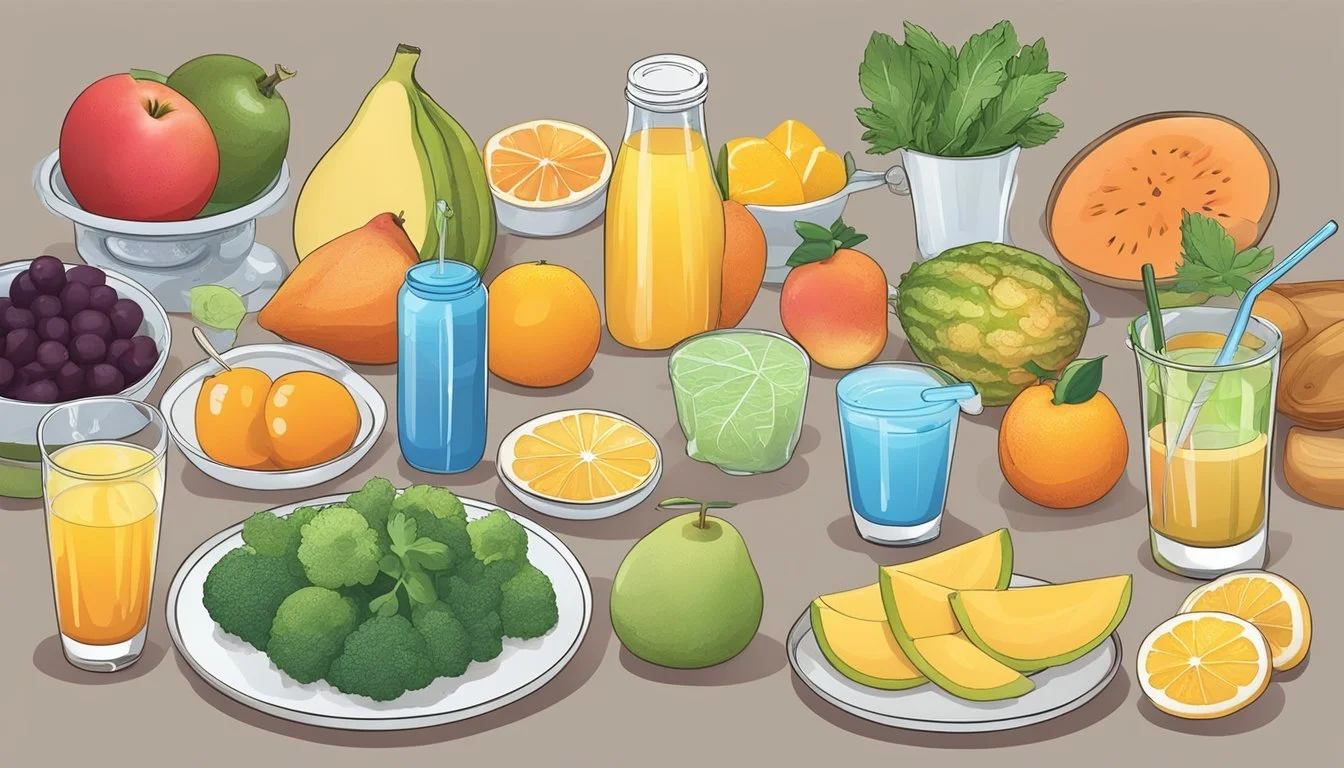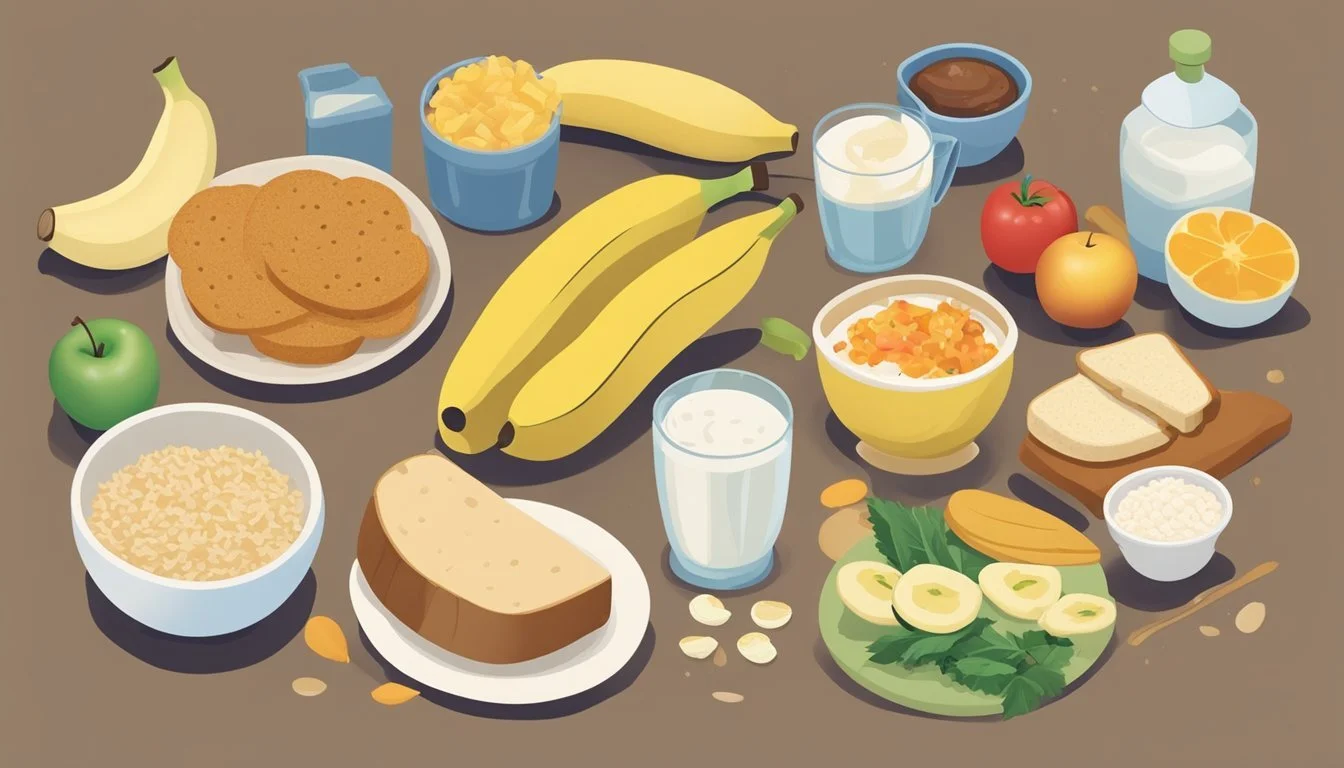Gentle Foods to Soothe Your 1-Year-Old's Diarrhea
Diarrhea in a 1-year-old can be a worrying experience for parents, raising concerns about dehydration and nutritional deficiencies. It is crucial to understand that certain foods can help manage the symptoms effectively and support your child's recovery process. Knowing which foods to offer and which to avoid can make a significant difference in alleviating discomfort and promoting healing.
Parents often seek guidance on the best dietary choices to aid their child's digestive health during such episodes. This article provides useful insights on selecting appropriate foods to help manage diarrhea in young children. With the right choices, parents can help restore balance to their child's digestive system and maintain overall well-being.
1) Bananas
Bananas can be a beneficial food for a 1-year-old experiencing diarrhea. The starch content in bananas helps absorb excess water in the colon, which firms up the stool.
Additionally, bananas are rich in potassium, an essential electrolyte that is often lost during bouts of diarrhea. Replenishing this electrolyte can help maintain proper body functions.
The mild nature of bananas makes them gentle on a young child's digestive system. They are easy to digest and unlikely to cause further stomach discomfort.
Incorporating bananas into the diet can be as simple as mashing them and feeding them directly to the child. They can also be mixed into cereals or smoothies for added nutritional value.
Understanding Diarrhea in 1-Year-Olds
Diarrhea in 1-year-olds can be caused by various factors and is accompanied by several symptoms that parents should monitor closely. This section provides insights into these elements to help caregivers manage the condition effectively.
Common Causes
Several factors can lead to diarrhea in 1-year-olds. Common causes include viral infections, such as rotavirus, which are highly contagious and prevalent in young children. Bacterial infections from contaminated food or water are also prominent triggers.
Antibiotics may disrupt the gut flora, leading to watery stools. Food intolerances, such as lactose intolerance, and allergies to certain foods can also cause digestive upset. Introduction of new solid foods might irritate a young digestive system, resulting in diarrhea.
Symptoms to Watch For
Key symptoms of diarrhea in 1-year-olds include frequent, loose, and watery stools. Other notable signs are fever, abdominal pain, and irritability. Dehydration is a serious risk with diarrhea, so watch for dry mouth, reduced tears, and fewer wet diapers.
Loss of appetite and vomiting can also accompany diarrhea. It’s crucial to monitor these symptoms closely and seek medical attention if they persist or worsen. Recognizing these signs early can prevent complications and ensure timely treatment.
Hydration and Electrolytes
Ensuring a 1-year-old stays hydrated is crucial when dealing with diarrhea. The body can lose essential electrolytes through diarrhea, making appropriate hydration solutions important.
Importance of Hydration
Hydration is vital for maintaining bodily functions, especially during bouts of diarrhea, which can lead to rapid fluid and electrolyte loss. Dehydration can be particularly dangerous for young children, resulting in issues like reduced urinary output, dry mouth, and lethargy.
Electrolytes, such as sodium and potassium, help balance fluids in the body and crucially support muscle function and nerve signaling. Natural sources like bananas and avocados can help replenish these essential nutrients. Keeping a close watch on the child's hydration status can prevent severe dehydration.
Safe Hydration Solutions
For young children, safe hydration solutions include oral rehydration solutions (ORS) and fluids that are gentle on the stomach. Brands like Pedialyte provide a balanced mix of electrolytes and fluids tailored for children's needs.
Coconut water is another option due to its natural electrolyte content and mild taste, making it more palatable for small children. Avoid sugary or caffeinated drinks as they can exacerbate dehydration. Breast milk or formula can be continued, as they also provide essential nutrients and hydration. Always consult with a healthcare provider for the best course of action tailored to the child's condition.
Foods to Avoid
When dealing with diarrhea in a 1-year-old, it's crucial to avoid certain foods that can exacerbate their symptoms. This includes both common dietary triggers and potential allergens.
Common Triggers
Certain foods have a higher likelihood of worsening diarrhea in young children. It's best to steer clear of high-fat and oily foods, as they can be difficult for young digestive systems to handle and may aggravate diarrhea.
Avoid sugary foods and artificial sweeteners, which can lead to further digestive upset. High-fiber foods, while beneficial in many circumstances, can also be problematic during diarrhea, so reduce the intake of beans, whole grains, and certain fruits.
Dairy products, including milk, cheese, and yogurt, should be minimized because they can contribute to digestive distress in children dealing with diarrhea. Instead, consider offering clear fluids and easily digestible items.
Potential Allergens
Potential allergens can also play a significant role in exacerbating diarrhea symptoms. Foods like peanuts, tree nuts, eggs, and shellfish are common allergens that may trigger digestive issues. Introducing new foods that have potential allergens should be avoided during this time as they can complicate the situation.
Be cautious with products containing gluten. Wheat-based items such as bread and pasta can sometimes lead to diarrhea if your child has a sensitivity. It's best to stick with easily digestible foods that have minimal risk of causing an allergic reaction.
Monitoring food intake and avoiding known allergens can help manage symptoms more effectively, ensuring a quicker recovery.




